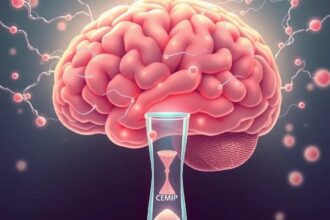Explore neuroplasticity, the brain’s ability to reorganize itself, and learn exercises like mindfulness, cognitive training, and physical activity to enhance brain health and mental well-being.
Discover how neuroplasticity exercises can transform your brain health, improve mental well-being, and combat cognitive decline through science-backed practices.
Understanding Neuroplasticity: The Brain’s Remarkable Ability to Adapt
Neuroplasticity, often referred to as brain plasticity, is the brain’s ability to reorganize itself by forming new neural connections throughout life. This process allows the brain to adapt to new experiences, learn new information, and recover from injuries. According to Dr. Michael Merzenich, a pioneer in neuroplasticity research, The brain is not a static organ; it is dynamic and constantly changing in response to our environment and experiences.
This groundbreaking discovery has revolutionized our understanding of brain health and opened new avenues for treating neurological conditions.
The Science Behind Neuroplasticity
Neuroplasticity occurs at both the structural and functional levels. Structurally, the brain can form new synapses, strengthen existing ones, or even generate new neurons in a process called neurogenesis. Functionally, the brain can reassign tasks from damaged areas to healthy ones. A study published in Nature Neuroscience (2018) demonstrated that mindfulness meditation can increase gray matter density in the hippocampus, a region associated with memory and learning, while reducing gray matter in the amygdala, which is linked to stress and anxiety.
Exercises to Boost Neuroplasticity
1. Mindfulness Meditation: Practicing mindfulness has been shown to enhance attention, reduce stress, and improve emotional regulation. A 2011 study from Harvard University found that just eight weeks of mindfulness training led to measurable changes in brain regions associated with memory, empathy, and stress.
2. Cognitive Training: Engaging in activities that challenge the brain, such as puzzles, learning a new language, or playing a musical instrument, can stimulate neuroplasticity. Dr. Yaakov Stern from Columbia University emphasizes that cognitive engagement is crucial for maintaining brain health as we age.
3. Physical Exercise: Aerobic exercise, in particular, has been linked to increased neurogenesis and improved cognitive function. A 2019 study in Frontiers in Aging Neuroscience found that regular physical activity can enhance memory and executive function in older adults.
Practical Tips for Incorporating Neuroplasticity Exercises
To reap the benefits of neuroplasticity, consistency is key. Start with small, manageable changes:
- Set aside 10-15 minutes daily for mindfulness meditation.
- Challenge your brain with new activities, such as learning a new skill or hobby.
- Incorporate aerobic exercise, like brisk walking or swimming, into your routine at least three times a week.
Neuroplasticity and Mental Health
Neuroplasticity plays a crucial role in managing mental health conditions like anxiety and depression. Dr. Richard Davidson, a neuroscientist at the University of Wisconsin-Madison, states that practices like mindfulness can literally rewire the brain to promote resilience and emotional well-being.
Research published in JAMA Psychiatry (2020) highlights that cognitive-behavioral therapy (CBT), which leverages neuroplasticity, is highly effective in treating depression.
Debunking Common Misconceptions
One common myth is that the brain stops changing after a certain age. However, studies have shown that neuroplasticity persists throughout life. Another misconception is that brain health is solely determined by genetics. While genetics play a role, lifestyle factors like diet, exercise, and mental stimulation have a significant impact.
Long-Term Cognitive Enhancement
By incorporating neuroplasticity exercises into your daily routine, you can enhance cognitive function, improve mental health, and reduce the risk of cognitive decline. As Dr. Merzenich aptly puts it, Your brain is a work in progress, and you have the power to shape it.




